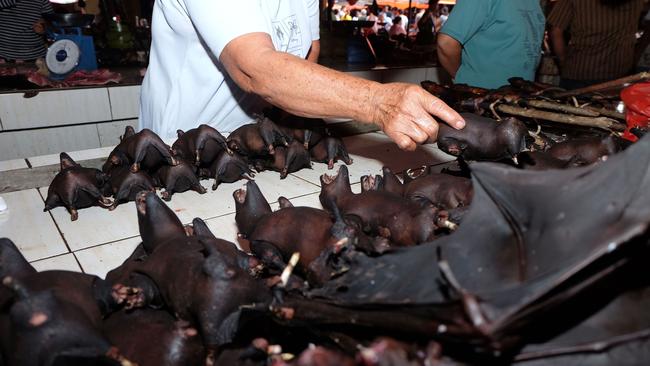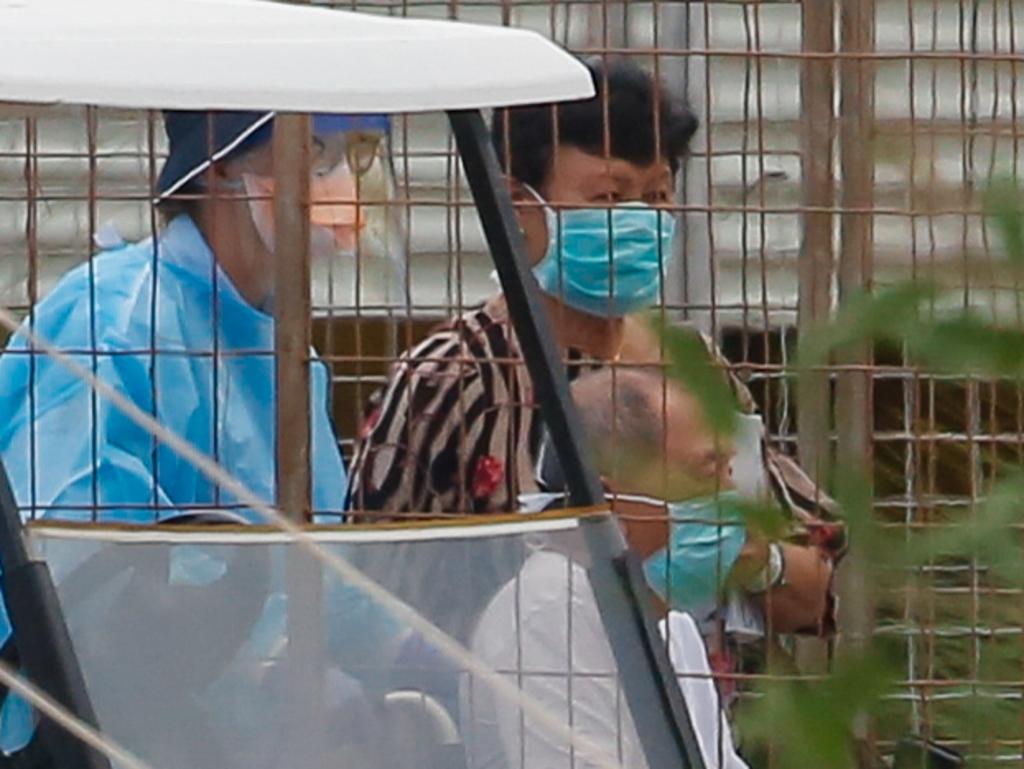Asian wildlife markets a ticking time-bomb, expert warns
Wildlife markets are still doing a roaring trade and may be the source of a new and more lethal epidemic. WARNING: Graphic

WARNING: Graphic content
Asian wildlife markets where animals are butchered and sold are “ticking time-bombs” for a new and potentially much more lethal epidemic than the current coronavirus outbreak, conservationists and disease experts have warned.
It is only a matter of time before the emergence of the next virus while the markets remain open and wild animals are traded, they said.
The dire prediction was issued amid a worldwide surge of infections outside China from Covid-19, the coronavirus, which is widely believed to have jumped to humans at a Chinese market from animals, possibly the ant-eating pangolin, infected by bats.
Across southeast Asia, different species are crammed together in hot, unsanitary cages in markets frequented by thousands of customers where sellers cut up different animals with the same knife in their bare hands.
It is the “perfect storm” of conditions for the spread of virus and disease, said Steven Galster, founder of Freeland, a Bangkok-based counter-trafficking organisation.
Conservationists and scientists have now urged southeast Asian countries to follow the example of China, which last week announced a ban on a wildlife trade estimated to be worth up to dollars $74bn a year.
Bats may have been identified as the probable source of the coronavirus outbreak, but on the butchers’ stalls at Tomohon meat market in northeast Indonesia, they are still in high demand.
There is little panic here about paniki, or bat meat, which is popularly consumed in a curried coconut stew. An instruction from officials to end the sale of fruit bats (pounds 1.65 each) has been widely ignored.

At Tomohon, skewered rats are grilled over charcoal and other culinary options include snake, lizard, dog and monkey. The meat from animals that are slaughtered in front of the buyer is viewed as a healthy choice.
“The rest of Asia needs to stop the wildlife trade now and close down these markets and restaurants selling so-called exotic meat,” said Galster, as Freeland launched a new investigation into the scale of wildlife trafficking by southeast Asian and African gangs.
“There is all this focus on finding the source of this coronavirus. It really doesn’t matter which particular market - close them all, or we will face this again and again.
“This goes way beyond China or pangolin or novel coronavirus. These markets are ticking time-bombs.”
Under orders from President Xi Jinping, China’s parliament banned the consumption and sale of wild animals in markets, restaurants and online in an attempt to thwart the spread of zoonotic diseases, which jump from animals to people.

The curbs are far-reaching but temporary, pending a review of China’s wildlife protection laws. There are still significant loopholes - wildlife for medicine is not covered - and fears that the powerful players in such a lucrative industry will use their financial heft to water down the regulations when the crisis passes, or take their business underground.
Galster welcomed the initial moves, including the closure of an estimated 20,000 wildlife markets - among them the “ground zero” location at Wuhan where live foxes, wolf cubs, turtles and crocodiles were on offer - as long as they are made permanent and properly implemented.
The demand for wild animals for meat and medicine in Asia, notably from Chinese consumers, has long caused alarm because of the risks for endangered species and horrific treatment of the animals.
But closing the markets and ending the trade is no longer just a matter of conservation and cruelty, say campaigners and scientists. A public health crisis is now at stake, as the world heads towards a pandemic.

Many lament that the lesson had not already been learnt, as the spread of Covid-19 followed an all-too familiar route.
The 2002-3 Sars outbreak was traced to an animal market in southern China. Beijing imposed a limited wildlife trade ban after that epidemic, but the restrictions faded as the virus was controlled. The related Mers coronavirus also spread to people from animals in the Middle East, as did ebola and HIV in Africa.
“We have witnessed a tremendous increase in emerging infectious diseases in the past 50 years due to human-related factors,” said Stanley Fenwick, a British veterinarian and scientist who worked for the US emerging pandemic threats programme in Bangkok.
“Some 75 per cent of these diseases are zoonotic, and the wildlife trade is undoubtedly helping to facilitate their spread. So why expose ourselves to the risks from wildlife markets where many different animals are sold and butchered in squalid, unhygienic conditions, highly contaminated with blood and faeces?”
Fenwick, a professor of infectious diseases at Tufts University in Massachusetts, added: “Shutting these markets would close down one area of potential risk to human health. It would also lead to a reduction in animal cruelty and the loss of biodiversity that the wildlife trade is driving.”







To join the conversation, please log in. Don't have an account? Register
Join the conversation, you are commenting as Logout